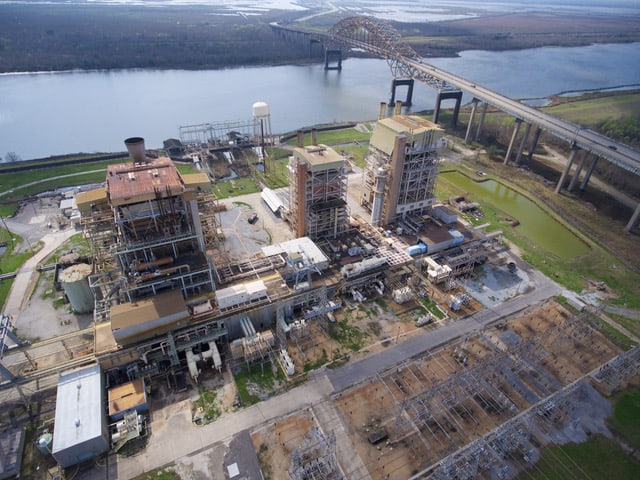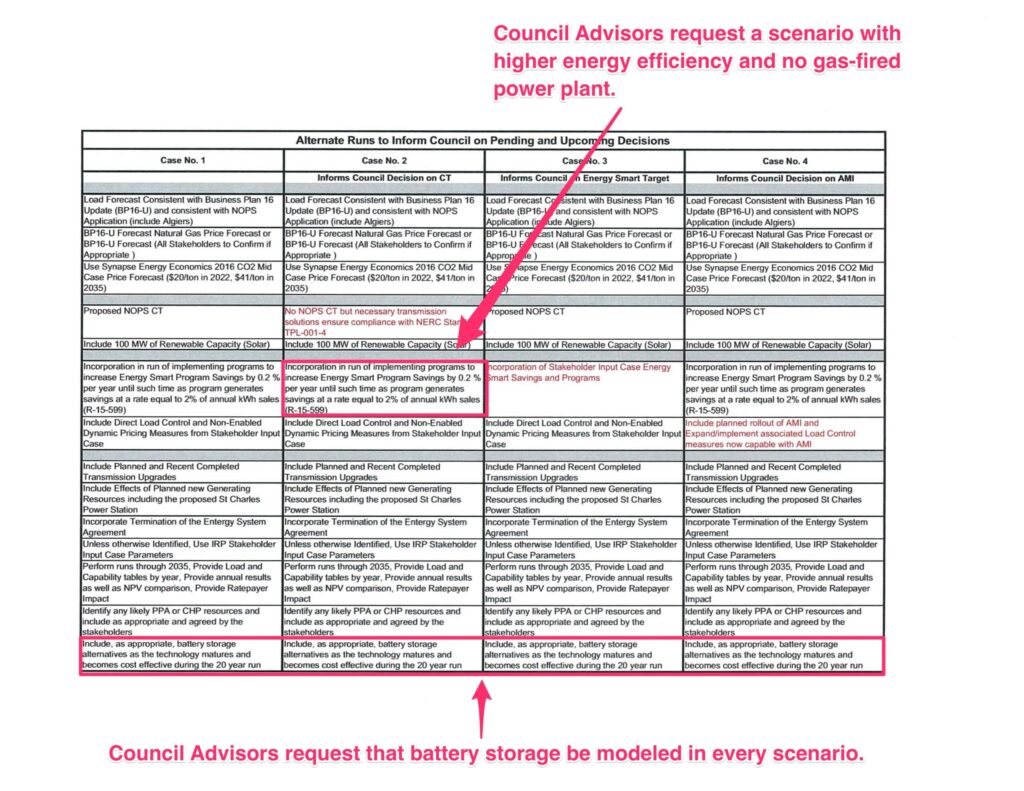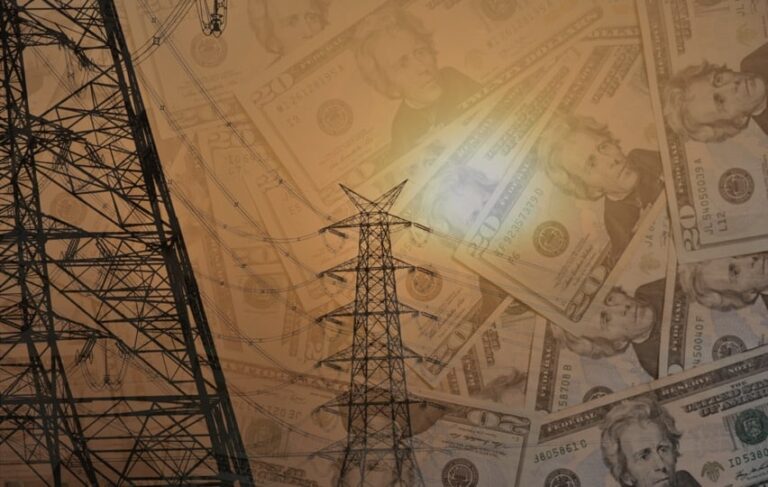Entergy misled New Orleans City Council, rewarded with $210 million gas plant

Entergy misled New Orleans City Council about the viability of alternatives such as energy efficiency and battery storage to its controversial gas plant, even after being required to perform specific analyses, according to a review of records obtained by the Energy and Policy Institute.
On September 19, 2016 New Orleans City Council Advisors requested, via its now-deceased lobbyist Billy Broadhurst, that Entergy model four scenarios to provide additional information that would help the Council determine the need for the New Orleans Power Station (NOPS) and if alternatives could meet the demand.
The New Orleans City Council formalized its request on November 3, 2016 by legally requiring Entergy New Orleans (ENO) to model the four scenarios requested by the Advisors. However, when Entergy ran its models it outright ignored the Council’s specific scenario requests, effectively predetermining the need for its prized natural gas plant.
Council required Entergy to model battery storage in each scenario, but Entergy only modeled storage in one scenario. Council also required Entergy to model increased energy efficiency without the construction of the natural gas plant, but Entergy did not do so. Entergy went on to model an increase in energy efficiency only in the scenario in which it also was allowed to build the natural gas plant.


Entergy is not the only utility juicing the models to justify questionable natural gas plants. Earlier this year, Michigan utility DTE also refused to follow directives, this time of the Michigan Public Service Commission (MPSC). When DTE finally followed the order, it delayed and prevented staff from fully evaluating the actual results. The commissioners reprimanded DTE for its behavior during the process but approved the plant anyway.
Larger Implications
Entergy did not follow the directive of the New Orleans City Council calling the legality of such a move into question at a time when the company is under intense scrutiny due its self-proclaimed responsibility for paying actors to support its $210 million NOPS.
Entergy’s failure to complete the necessary modeling may have led to the construction of an unnecessary gas plant. In 2015, NextEra CEO Jim Robo mused, “Post 2020, there may never be another [gas] peaker built in the US”. Since 2015, battery storage prices have continued to drop.
Energy efficiency is the cheapest energy resource available at just $0.039/kWh on average, according to a study from Synapse. Entergy’s altered modeling reduced the ability of energy storage, demand response, or energy efficiency to properly meet projected demand.



